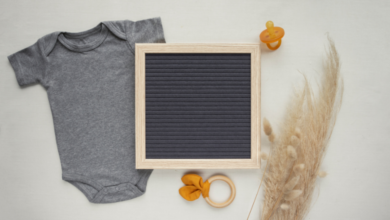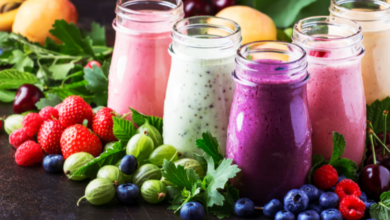Foods Rich in Iron to Consume During Pregnancy

Introduction
Iron is a crucial mineral during pregnancy, essential for both maternal health and fetal development. Adequate iron intake supports increased blood volume, helps prevent anemia, and promotes healthy growth and development of the baby. This article explores the importance of iron during pregnancy, identifies key iron-rich foods, and provides practical tips for incorporating these foods into your diet.
- Importance of Iron During Pregnancy
1.1 Increased Blood Volume
- Expanded Blood Supply: During pregnancy, the body’s blood volume increases significantly to support the growing fetus. This heightened demand requires a higher intake of iron to produce more hemoglobin, the protein in red blood cells that carries oxygen.
1.2 Prevention of Anemia
- Iron Deficiency Anemia: Iron deficiency anemia is a common condition in pregnant women, characterized by low hemoglobin levels and fatigue. Adequate iron intake helps prevent this condition and ensures that both mother and baby receive sufficient oxygen.
1.3 Fetal Development
- Healthy Growth: Iron is vital for the development of the baby’s brain, muscles, and organs. It also supports the formation of red blood cells and helps prevent preterm birth and low birth weight.
- Recommended Iron Intake During Pregnancy
2.1 Daily Iron Requirements
- Pregnant Women: The Recommended Dietary Allowance (RDA) for iron during pregnancy is 27 mg per day. This increased requirement reflects the body’s need to support the additional blood volume and fetal development.
2.2 Sources of Iron
Iron comes in two forms: heme and non-heme. Heme iron is found in animal products and is more easily absorbed by the body, while non-heme iron is found in plant-based foods and is less readily absorbed.
- Iron-Rich Animal-Based Foods
3.1 Red Meat
- Beef and Lamb: Beef and lamb are excellent sources of heme iron, providing about 2.1 mg of iron per 3-ounce serving. They also contain other essential nutrients, such as protein and B vitamins.
3.2 Poultry
- Chicken and Turkey: Poultry, particularly dark meat, is a good source of heme iron. A 3-ounce serving of cooked chicken or turkey provides approximately 1.1 mg of iron.
3.3 Fish and Seafood
- Salmon and Tuna: Fish like salmon and tuna are rich in heme iron and omega-3 fatty acids. A 3-ounce serving of cooked salmon provides about 0.9 mg of iron. Shellfish, such as shrimp and oysters, also contain significant amounts of iron.
- Iron-Rich Plant-Based Foods
4.1 Legumes
- Lentils and Beans: Lentils and beans are excellent sources of non-heme iron. One cup of cooked lentils provides about 6.6 mg of iron, while a cup of cooked chickpeas offers approximately 4.7 mg.
4.2 Spinach and Leafy Greens
- Spinach and Kale: Leafy greens like spinach and kale are rich in non-heme iron. One cup of cooked spinach contains about 6.4 mg of iron, and a similar serving of cooked kale provides around 1.2 mg.
4.3 Fortified Cereals
- Breakfast Cereals: Many breakfast cereals are fortified with iron. One serving of fortified cereal can provide up to 18 mg of iron, depending on the brand and formulation.
4.4 Nuts and Seeds
- Pumpkin Seeds and Almonds: Nuts and seeds are good sources of non-heme iron. A quarter cup of pumpkin seeds contains about 2.5 mg of iron, while almonds offer around 1.1 mg per quarter cup.
- Enhancing Iron Absorption
5.1 Vitamin C
- Boosting Absorption: Consuming vitamin C-rich foods alongside iron-rich meals can enhance the absorption of non-heme iron. Foods like oranges, strawberries, and bell peppers are excellent sources of vitamin C.
5.2 Avoiding Inhibitors
- Tea and Coffee: Certain substances, such as tannins in tea and coffee, can inhibit iron absorption. It’s advisable to avoid consuming these beverages with iron-rich meals.
5.3 Combining Foods
- Iron-Rich Meals: Combine iron-rich foods with those high in vitamin C for better absorption. For example, pairing a spinach salad with citrus fruits or a lentil stew with bell peppers can boost iron intake.
- Practical Tips for Incorporating Iron-Rich Foods
6.1 Meal Planning
- Diverse Diet: Plan meals that include a variety of iron-rich foods from both animal and plant sources. A well-rounded diet ensures that you meet your iron needs and enjoy a range of nutrients.
6.2 Cooking Methods
- Maximizing Iron Content: Cooking methods can affect iron content. For instance, cooking in cast-iron cookware can increase the iron content of foods, particularly acidic foods like tomato-based sauces.
6.3 Snack Ideas
- Iron-Rich Snacks: Incorporate iron-rich snacks into your daily routine. Examples include a handful of almonds, a smoothie with spinach and fortified cereal, or a salad topped with pumpkin seeds.
- Monitoring Iron Levels
7.1 Regular Check-Ups
- Blood Tests: Regular prenatal check-ups and blood tests help monitor iron levels and overall health. If you have symptoms of anemia or are at risk of iron deficiency, your healthcare provider may recommend iron supplements.
7.2 Supplements
- Iron Supplements: If dietary intake alone is insufficient, iron supplements may be prescribed. Always follow your healthcare provider’s advice regarding dosage and type of supplement.
- Conclusion
Maintaining adequate iron levels during pregnancy is essential for both maternal and fetal health. A diet rich in iron, combining both heme and non-heme sources, can help meet the increased demands of pregnancy. Incorporating iron-rich foods into your meals and snacks, enhancing absorption with vitamin C, and avoiding inhibitors will support optimal health. Regular monitoring and consultation with healthcare providers ensure that you meet your nutritional needs and address any concerns related to iron intake.
Brief
Iron is crucial during pregnancy to support increased blood volume, prevent anemia, and promote fetal development. Recommended daily intake is 27 mg, and sources include heme iron from animal products and non-heme iron from plant-based foods. Iron-rich foods include red meat, poultry, fish, legumes, spinach, fortified cereals, and nuts. Enhancing absorption with vitamin C and avoiding inhibitors like tea and coffee can improve iron uptake. Regular check-ups and potential supplements help manage iron levels and ensure overall health during pregnancy.




